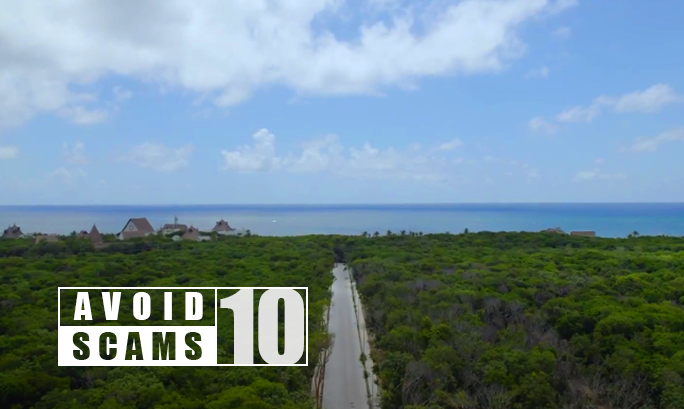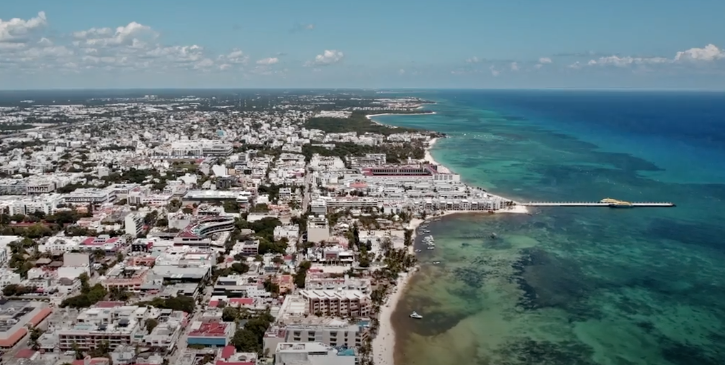How Not To Get Scammed Part 10: How Foreigners Lose Deposits

The allure of a dream home or a lucrative investment in a vibrant market like Tulum is powerful. However, for foreigners venturing into real estate, particularly in pre-construction, the path is fraught with potential pitfalls that can lead to the painful loss of a deposit. Understanding these risks and taking proactive measures is paramount to safeguarding your investment.
Mycasa Real Estate's licensed agents specialize in navigating the complexities of the Mexican real estate market. We prioritize your security by vetting developers and ensuring thorough due diligence, holding your hand through every step of the process. Reach out to us for a quick consultation.
How Not To Get Scammed Series
Part 1 | Part 2 | Part 3 | Part 4 | Part 5 | Part 6 | Part 7 | Part 8 | Part 9 | Part 10 | Part 11 | Part 12 | Part 13 | Part 14
Here's why foreigners may lose their deposits and how to avoid it:
1. Working with Developers with a Bad or No Track Record
One of the most significant risks in pre-construction real estate is entrusting your deposit to a developer who lacks a proven history of successfully completing projects. New developers, or those with a history of unfinished or poorly executed developments, pose a considerable threat to your investment.
"One of the most frequent mistakes is trusting developers without proper due diligence. It's especially important to ask how a developer is funding the construction, who actually owns the land, and whether they have a proven history in that specific region," advises Susy Macdonald, a real estate expert. She further stresses the importance of checking land ownership and reviewing the corporate structure, noting that if "the same company is funding multiple sites simultaneously and pooling or “commingling” buyer deposits, this can be a red flag."
How to avoid it:
-
Research Past Projects: Demand a list of completed projects and, if possible, visit them. Observe the quality of construction and maintenance.
-
Talk to Past Buyers: Seek out testimonials or, even better, connect with residents of their previous developments.
-
Verify Online Presence: Search for reviews, news articles (positive or negative), and any legal disputes or halted projects associated with the developer.
2. Incomplete Due Diligence and Delayed/Unissued Permits
Failing to conduct comprehensive due diligence at the outset is a recipe for disaster. This includes verifying all necessary permits and licenses for construction, environmental impact, and land use. Delays or, worse, the complete absence of these crucial documents can bring a project to a standstill, leaving buyers in limbo and their deposits at risk.
"In some regions, developments launch sales before obtaining all necessary permits—everything from construction to environmental approvals. This can derail or halt a project halfway if local authorities intervene," warns Susy Macdonald.
How to avoid it:
-
Engage an Independent Local Real Estate Attorney: This is non-negotiable. Your attorney will review all contracts, conduct thorough title searches, verify permits (building, environmental, and land use), and check for any liens or encumbrances. Mycasa only engages with the absolute best attorneys in the region.
-
Request Proof of Permits: Insist on seeing documentation that the project is fully licensed for construction, utilities, and environmental impact before making any payments.
-
Understand Zoning Regulations: Ensure the property's location is zoned for its intended use (residential, commercial, etc.).
-
3. Developer Lacks Funds and Uses Current Project's Funds for Previous Ones
A dangerous financial practice among some unscrupulous developers is using deposits from new projects to complete or finance older, stalled ones. This "Ponzi scheme" like approach leaves the latest buyers vulnerable if sales slow or if the developer's overall financial health is precarious.
"Extremely large discounts tied to large upfront payments can be a red flag. Some developers rely on early sales to finance construction and may run out of funds if sales slow down, leading to long delays or even incomplete projects," states Susy Macdonald.
Bloomberg reported on a "multimillion-dollar condo development nightmare" in Tulum where "home buyers... thought they were getting a piece of beachside heaven. Instead, they encountered dead developers, unfinished condos and lost their life savings" (Bloomberg via YouTube).
How to avoid it:
-
Inquire about Financing Methods: Ask how the developer is financing the build. Reputable developers often have established bank loans or sufficient capital to fund projects without solely relying on buyer deposits.
-
Link Payments to Milestones: The safest approach is to structure your payment schedule based on construction milestones rather than fixed dates. For example, a percentage upon signing, another upon completion of the building shell, and the final balance at delivery. This incentivizes the developer to progress.
-
Beware of "Too Good to Be True" Deals: Unrealistic promises of guaranteed rental income or excessively high appreciation, especially coupled with high upfront deposit demands, are red flags.
-
4. Other Reasons Foreigners Lose Deposits
-
Buying from Non-Owners or on Ejido Land: Some foreigners unfortunately buy property from individuals who are not the legal owners or from developers selling "Ejido land" (communal land) without proper title or conversion. This can lead to endless legal battles and forfeiture of investment. As MexLaw highlights, "Foreigners buying property or building on Ejido land, this land does not have the appropriate title" (MexLaw.com).
-
"Presta Nombre" (Lend a Name) Scams: This involves buying property under a Mexican citizen's name to bypass foreign ownership regulations, particularly in restricted zones. While seemingly convenient, it leaves the foreign buyer with no legal claim to the property. "You may trust your Mexican friend explicitly not to take possession of your property, but what if this person has financial problems and the government or his bank takes possession, or the property ends up in a divorce settlement or as part of his estate?" warns MexLaw.com.
-
Squatters and Unregistered Sales: In some cases, squatters may take over properties and "sell" them to unsuspecting foreigners with false promises of deeds in process. Alternatively, sellers may resell a property if the previous buyer did not follow legal processes and the deed was not updated in the public registry.
-
Timeshare Scams: While distinct from full property ownership, high-pressure timeshare sales often involve substantial upfront deposits that are difficult to recover when the promises fail to materialize. "Timeshare fraud is common in Mexico, with scammers using high-pressure sales tactics to lure foreigners into dubious contracts," notes MexLaw.com.
-
The Mycasa Difference: Your Shield Against Scams
At Mycasa Real Estate, we believe in empowering our clients with knowledge and providing a robust safety net. Our licensed agents, coupled with our in-house legal team, perform meticulous due diligence on every project and developer. We prioritize transparency, ensuring you understand every clause of your contract and the intricacies of Mexican real estate law. Don't let your dream in Mexico turn into a nightmare; partner with us for a secure and successful investment.
Updated 6/28/25











Comments (0)